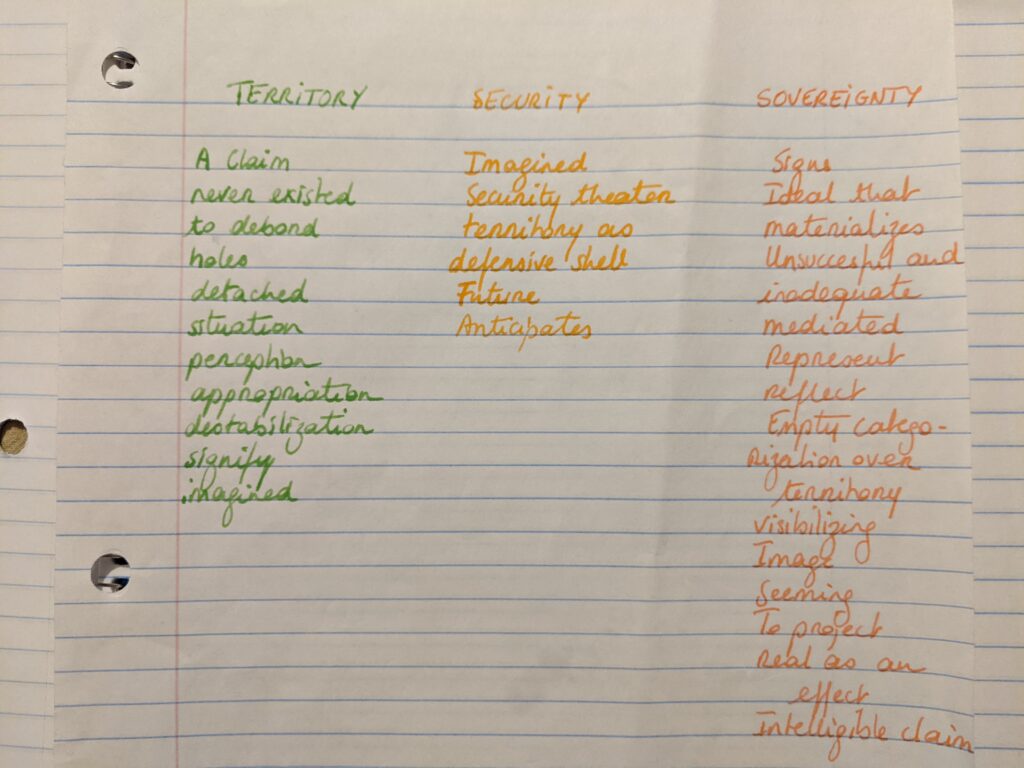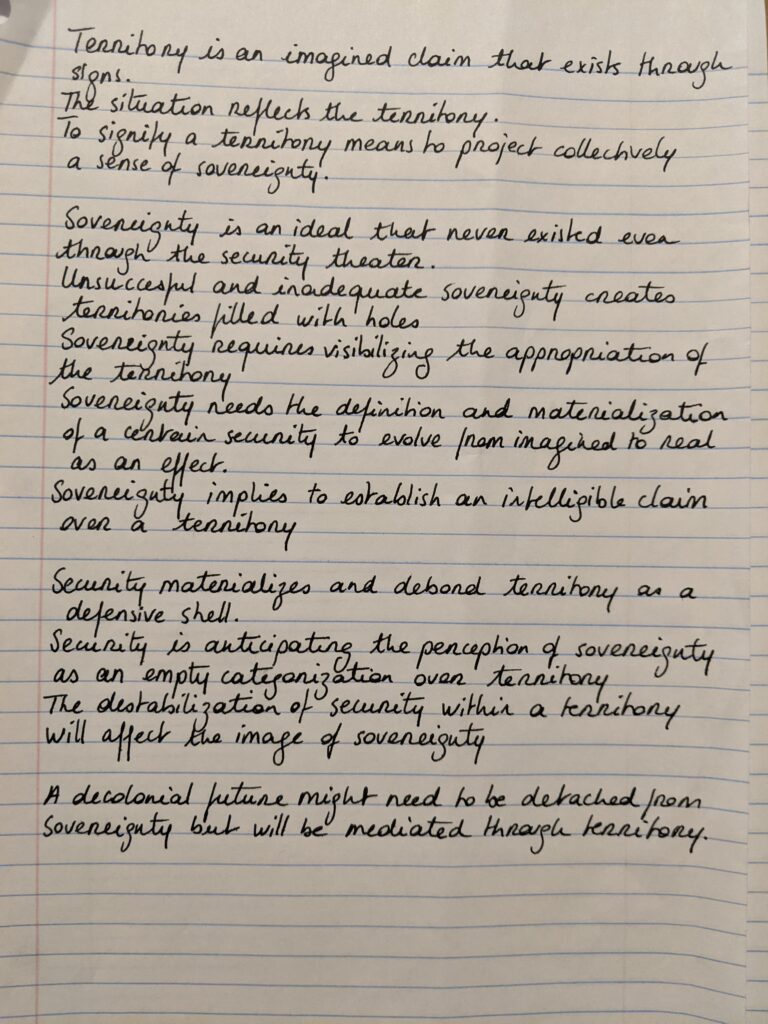Jah presented to us the method of Poetry From The Future, showing us different examples. The presentation was very fluid and not as structured as what Miranda did. I learned about M. NourbeSe Philip’s Zong! and was very touched by this way of approaching research.
It is very hard for me to incorporate creative elements to my research. Of course, my research interests, the way I formulate the questions incorporate some elements of creativity. However, I very rarely engage with artistic processes and it is very difficult to do so. I have repeatedly been the one to try and organize the group process through summarizing what we could do in parallel with our cases, to try to sew our parts together and find some feeling of coherence. In that sense, this project has really challenged me to open to the unknown – in terms of method and doings, as well as in terms of not wanting to be permanently understanding where I was going. This is the kind of consideration I speak about when I mention the permanent contingency of the process. It has also been -yet again- an excellent reminder of how much the academy tends to restrict us in the way I approach research, paying no attention to how I feel, restraining myself to a strict way of doing, and I have been thinking a lot about my French cartesian training.
This method has been really a dive into the unknown and uneasy. I sat down and started re-reading our iterations about sovereignty, territory and security. I did not think I could create anything poetic about it, however I decided to note down the words or expressions that caught my attention from everyone’s reflection. In order to avoid going back to my classic “academic analysis”, I handwrote those words, using a color code for the different terms. I decided to try to create sentences using one word of each column in order to think through the associations that could be made.

The result, if not poetic, is surprising. Some sentences seemed to work really well and to even sometimes open new ideas! One of them would be to do a registry of the security theater in specific places of urban intervention. Another was to think more about unsuccessful sovereignty and territories filled with holes (I explored the idea of territory holes with the popular mapping method later on).
Here are the sentences that appeared from this exercise:
- Territory is an imagined claim that exists through signs.
- The situation reflects the territory.
- To signify a territory means to project collectively a sense of sovereignty.
- Sovereignty is an ideal that never existed even through the security theater.
- Unsuccessful and inadequate sovereignty creates territories filled with holes.
- Sovereignty requires visbilizing the appropriation of the territory.
- Sovereignty needs the definition and materialization of a certain security to evolve from imagined to real as an effect.
- Sovereignty implies to establish an intelligible claim over a territory.
- Security materializes and desbords territory as a defensive shell.
- Security is anticipating the perception of sovereignty as an empty categorization over territory.
- The destabilization of security within a territory will affect the image of sovereignty.
- A decolonial future might need to be detached from sovereignty but will be mediated through territory.

I was surprised and amused to learn during our last week of group work that Jessie had created an online sentence generator from our initial iteration exercise, and that Laura had also realized the same kind of word gymnastics! It was also very pleasant to be able to work using handwriting, this semester has been heavy on screens and it felt very liberating to write on a “real surface”.
Test Jessie’s sentence generator about Sovereignty, Security and Territory:
https://botnik.org/apps/writer/?source=885306dff1fb0860fd96b0b0359d0665


